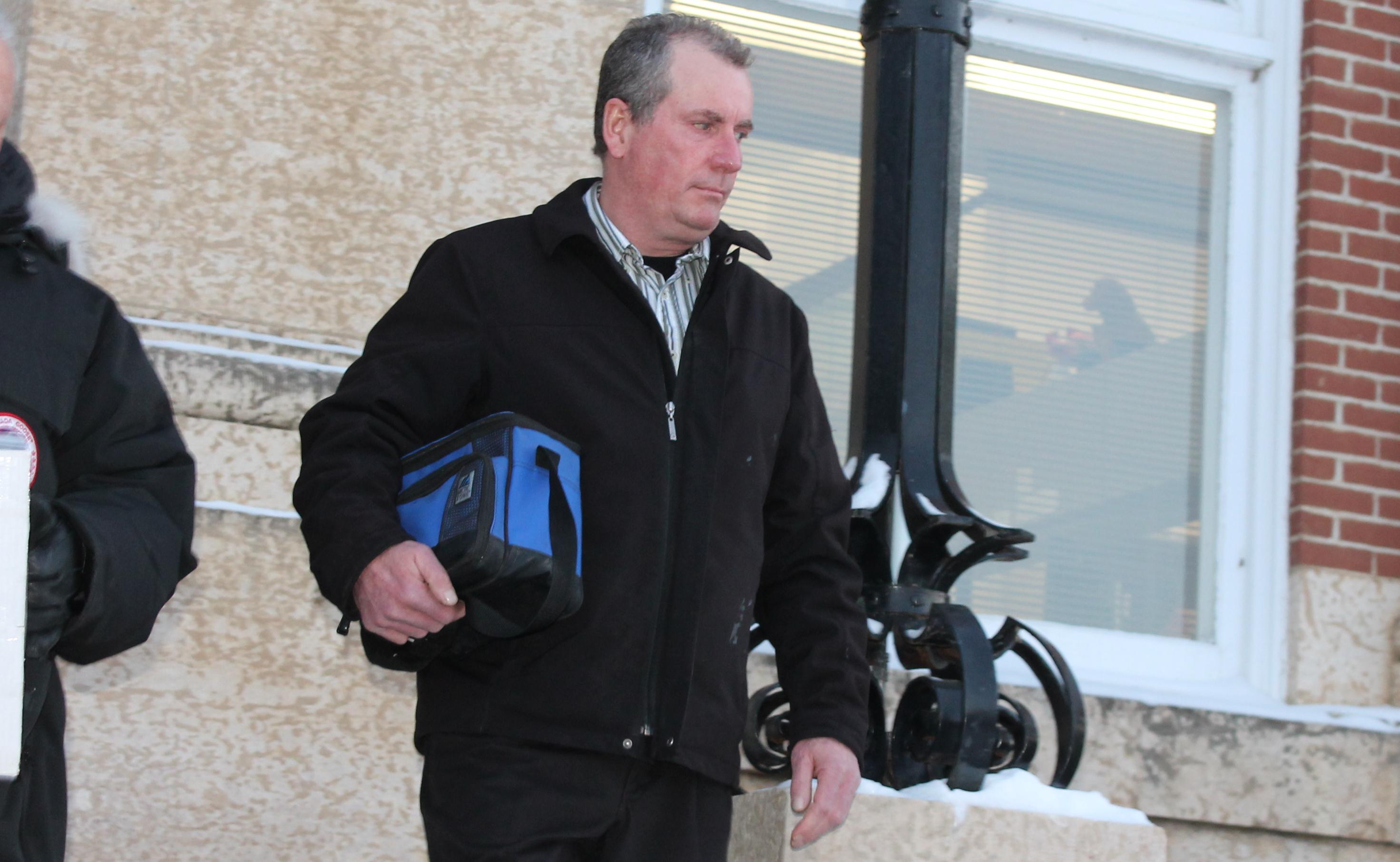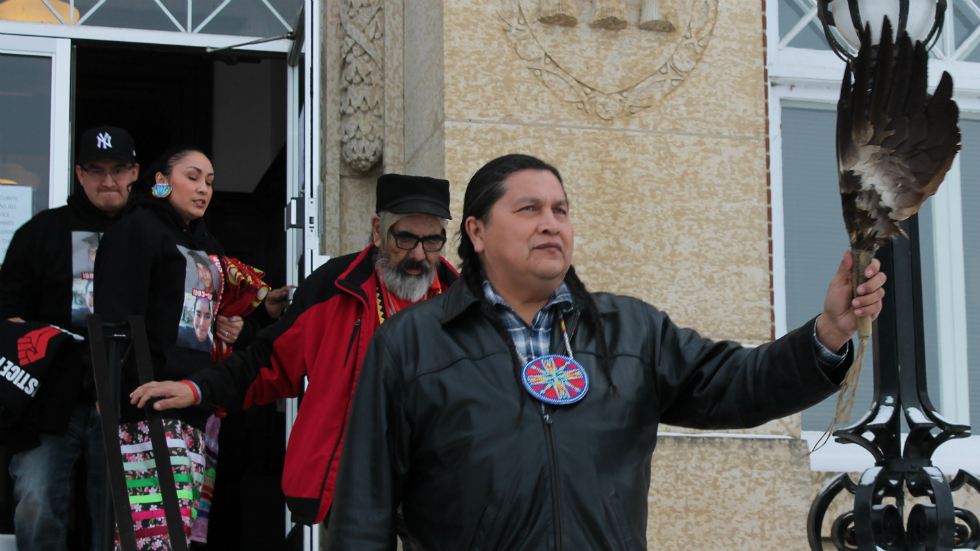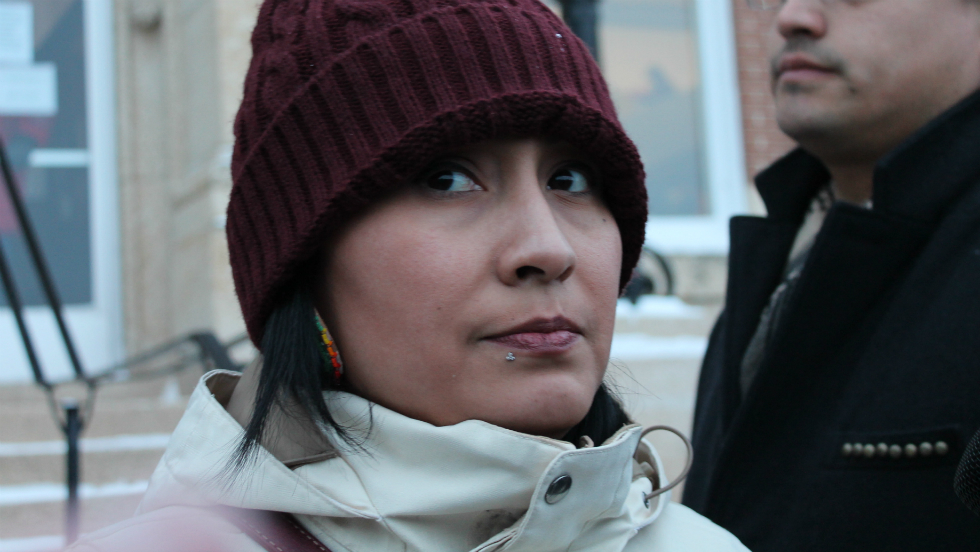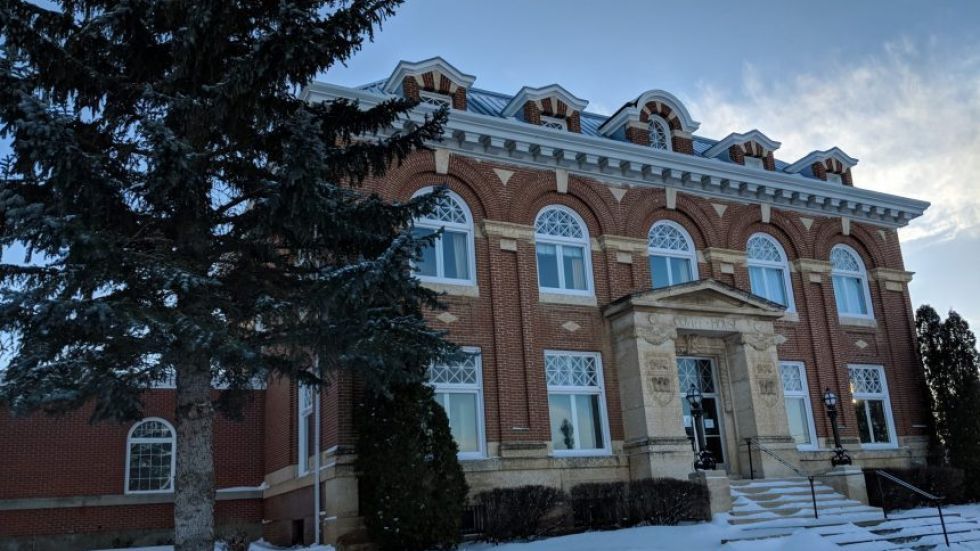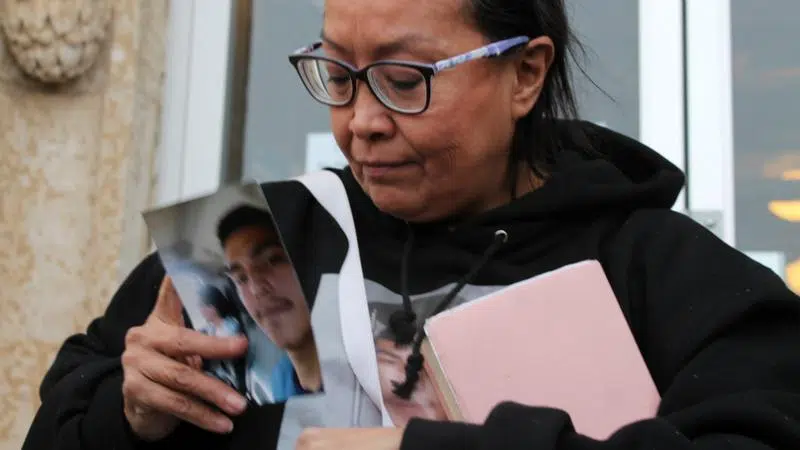
‘It is far from over’: Push for reform continues one year after Stanley verdict
It was a bitterly cold February night when a jury, after deliberating for 13 hours, shuffled into a Queen’s Bench courtroom in Battleford and acquitted Gerald Stanley in the shooting death of Colten Boushie.
The 22-year-old from the Red Pheasant Cree Nation was killed on Stanley’s farmyard near Biggar in August 2016.
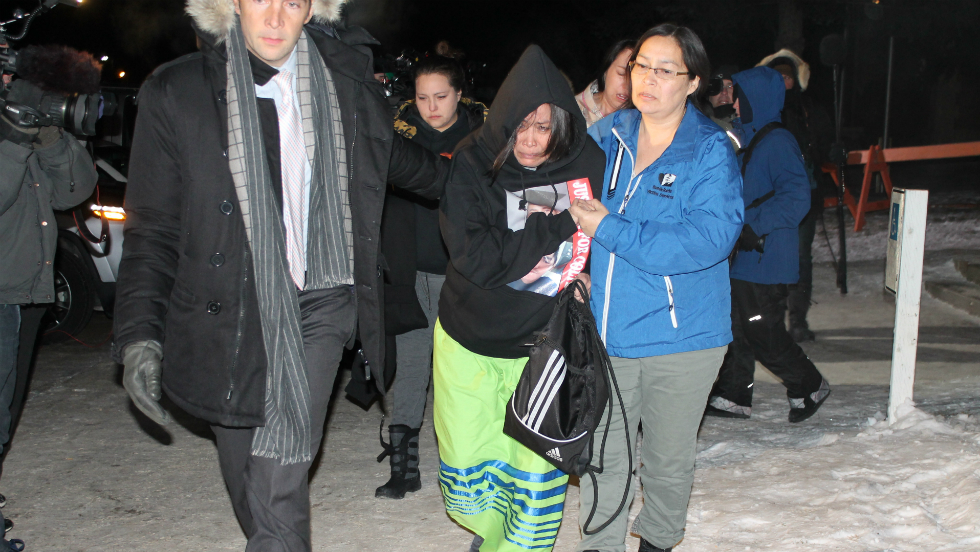 The mother of Colten Boushie, Debbie Baptiste, is seen leaving Court of Queen’s Bench in Battleford on Feb. 9, 2018. (battlefordsNOW Staff/Angela Brown)
The mother of Colten Boushie, Debbie Baptiste, is seen leaving Court of Queen’s Bench in Battleford on Feb. 9, 2018. (battlefordsNOW Staff/Angela Brown)
